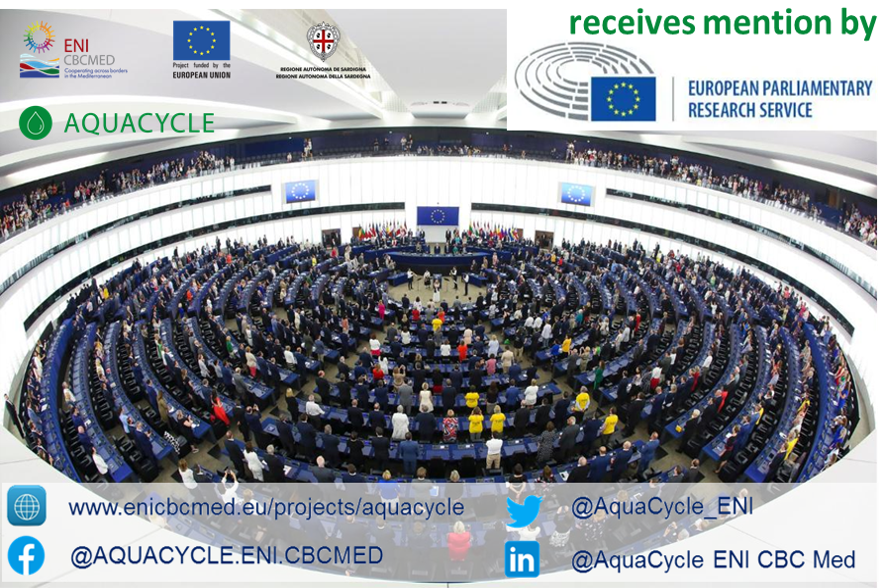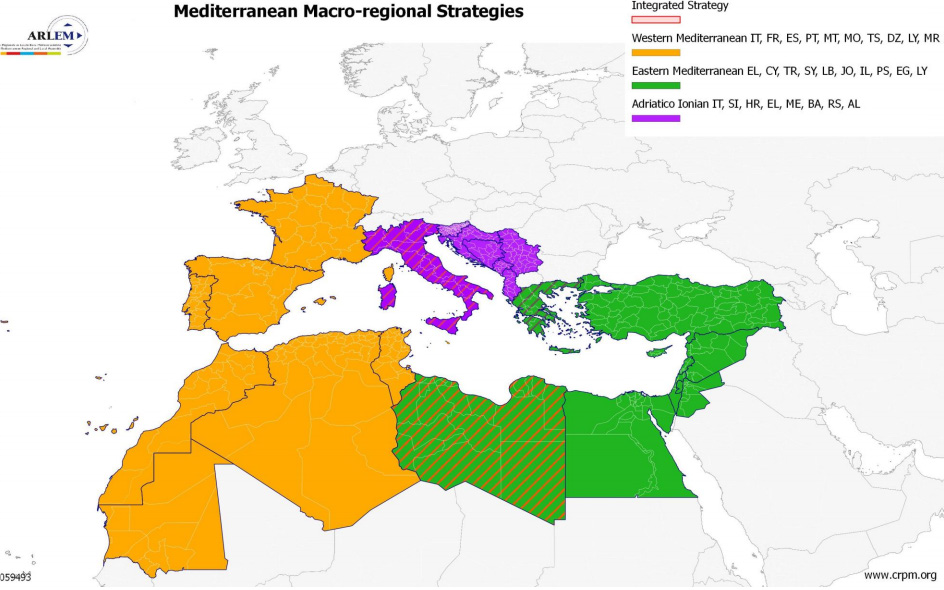AQUAYCYCLE receives mention by European Parliamentary Research Service

In October 2021, the European Parliamentary Research Service (EPRS) issued a Briefing entitled “Working towards a macro-regional strategy for the Mediterranean”. Authored by Christiaan Van Lierop, the briefing informs that the European Parliament identified the Mediterranean as a future EU macro-region alongside the Danube and Alpine regions as early as back in 2010.
However, the briefing raises serious questions as to the prospects for the implementation of such a macro-regional strategy for the Mediterranean. It acknowledges that progress towards this goal has been slow and compounded by issues such as climate change, environmental protection, migration and mobility, and digital transformation. It also informs about the difficulty to agree on a set of common priorities for a possible macro-regional strategy in the Mediterranean, and explains that this is due to the priorities of the countries of the southern Mediterranean differing significantly from those of their northern neighbours.
Over the years, alongside an overarching strategy encompassing the whole Mediterranean region, also three separate macro-regional strategies have been formulated. As shown in the figure below, the latter concern strategies dedicated, respectively to the Western and Eastern Mediterranean and a strategy addressed to the Adriatic-Ionian area.

The briefing brings an exhaustive overview of the large number of territorial cooperation initiatives which have been developed over the years. These included: European Neighbourhood Policy (ENP), Union for the Mediterranean (UfM), EU strategy for the Adriatic and Ionian region, Euro-Mediterranean Regional and Local Assembly (ARLEM), WestMED initiative, Working group on territorial cooperation and macro-regional strategies (CPMR), MED Cities, MED Cooperation Alliance, European territorial cooperation (Interreg), Interreg Mediterranean programme, Interreg ADRION programme, and the Mediterranean Sea Basin ENI CBC programme (ENI CBC Med).
It is precisely in the description of the latter initiative, where AQUACYCLE is mentioned as a project which supports the sustainable treatment and reuse of urban wastewater using eco-innovative technology.
In the EPRS briefing, the (insufficient degree or the lack of) civil society involvement in southern Mediterranean countries’ governance structures is seen as one of the main challenges when it comes to establishing a strategy in the Mediterranean region.
A similar comprehensive review has been made of initiatives pertaining to the theme of water and sanitation by the AQUACYCLE partnership. The scope of this desk research was to set a policy context for the forthcoming MedAPOC Charter which is intended to promote the safe reuse of treated wastewater. To this effect, the review distinguishes between the relevant EU Policy Framework, the Sustainable Development Goal on Water and Sanitation (SDG 6), and initiatives with, respectively, a Mediterranean and an International dimension pertaining to the same theme.
In the forthcoming second series of stakeholder workshops, views on the safe reuse of treated wastewater and inputs towards the drawing up of reuse action plans will be collected through the employment of participatory GIS. These inputs will purposely be collected from local communities around the 3 planned demonstration sites of AQUACYCLE’s eco-innovative wastewater treatment technology in Lebanon, Spain and Tunisia. The aim is to showcase that is perfectly feasible to invite local communities to take an active role in decision-making that concerns the use of - in this instance, a non-conventional - water resource and of the land they live on. In doing so, the AQUACYCLE partnership aims to set best practice towards achieving good governance in the water and sanitation sectors.
The full content of the briefing can be accessed through this link.









